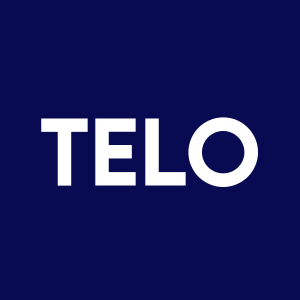Telomir Pharmaceuticals Reports New Data Showing Telomir-1 Resets Cancer's “Kill-and-Clean” Defense Systems in an Aggressive Prostate Cancer Model, Outperforming Rapamycin and Chemo
Rhea-AI Summary
Telomir Pharmaceuticals (NASDAQ:TELO) reported preclinical in vivo data (mice with aggressive human prostate tumors) showing oral Telomir-1 reduced DNA methylation of CASP8 and GSTP1 versus vehicle and chemotherapy at Day 10 and Day 21.
Telomir-1 produced a progressive, sustained methylation decrease through Day 21, while Rapamycin's early Day 10 effect partially rebounded by Day 21. Chemotherapy alone did not lower methylation. Combination Telomir-1 + chemotherapy showed lower methylation than chemotherapy alone.
Positive
- CASP8 promoter methylation reduced at Day 10 and Day 21 versus vehicle and chemotherapy
- GSTP1 methylation decreased versus vehicle and chemotherapy by Day 21
- Progressive, sustained Telomir-1 methylation decrease through Day 21
- Telomir-1 + chemotherapy lowered CASP8 and GSTP1 methylation versus chemotherapy alone
Negative
- Rapamycin methylation reduction at Day 10 partially rebounded by Day 21
- Chemotherapy alone did not reduce CASP8 or GSTP1 methylation
News Market Reaction – TELO
On the day this news was published, TELO gained 7.25%, reflecting a notable positive market reaction. Argus tracked a peak move of +16.8% during that session. Argus tracked a trough of -10.3% from its starting point during tracking. Our momentum scanner triggered 8 alerts that day, indicating moderate trading interest and price volatility. This price movement added approximately $3M to the company's valuation, bringing the market cap to $48M at that time.
Data tracked by StockTitan Argus on the day of publication.
New findings highlight Telomir-1's impact on CASP8 and GSTP1, two critical genes that regulate cell death and glutathione-based detoxification pathways often disrupted in cancer.
MIAMI, FLORIDA / ACCESS Newswire / October 23, 2025 / Telomir Pharmaceuticals, Inc. (NASDAQ:TELO) ("Telomir" or the "Company"), a pre-clinical biotechnology company developing therapies that target the epigenetic roots of cancer, aging, and age-related disease, today reported new preclinical data from an in vivo study in mice bearing human aggressive prostate cancer tumors evaluating DNA-methylation changes in two key defense genes - CASP8 and GSTP1 - following treatment with oral Telomir-1, Rapamycin, chemotherapy, and combination regimens.
Apoptosis ("kill") and detoxification ("clean") pathways are two of the body's fundamental defense systems against cancer initiation and progression, and Telomir-1's observed modulation of these pathways through DNA-methylation control may represent an important area of ongoing scientific evaluation in oncology research.
Overview of Findings
The study examined DNA methylation, a central epigenetic process that helps determine whether genes are active or silenced. In this model, baseline tumor samples exhibited DNA hypermethylation of CASP8 and GSTP1, a pattern often associated with reduced activity in genes involved in apoptosis and detoxification.
CASP8 (Apoptosis Pathway)
CASP8 helps initiate programmed cell death. Telomir-1 treatment was associated with reduced methylation of the CASP8 promoter at Day 10 and 21 relative to vehicle and chemotherapy group, suggesting potential reactivation of apoptotic pathway control.GSTP1 (Detoxification and Glutathione Pathway)
GSTP1 encodes glutathione S-transferase Pi 1, an enzyme that uses glutathione (GSH) - one of the body's most important natural antioxidants - to neutralize reactive oxygen species and chemical stress. Telomir-1 was associated with decreased DNA-methylation of GSTP1 compared with vehicle and chemotherapy, consistent with partial restoration of this critical detoxification and antioxidant defense system.Chemotherapy Alone
Chemotherapy did not appear to reduce methylation of either gene, consistent with prior observations that certain cytotoxic agents can reinforce methylation stress - a process that may contribute to taxane resistance (reduced tumor response to chemo drugs like paclitaxel) driven by transcriptional and epigenetic rewiring.Combination of Chemotherapy + Telomir-1
When Telomir-1 was administered with chemotherapy, both CASP8 and GSTP1 showed lower methylation than with chemotherapy alone, suggesting that Telomir-1 may help counteract chemotherapy related epigenetic silencing in this setting.
Why These Pathways Matter in Cancer Biology
Apoptosis and detoxification represent two of the body's most fundamental defense systems against cancer initiation and progression.
Apoptosis - the "Kill System"
This pathway allows damaged or abnormal cells to self-destruct before they proliferate. In many cancers, genes such as CASP8 become silenced through abnormal DNA methylation, preventing programmed cell death and enabling tumor survival and resistance to therapy.Detoxification - the "Clean System"
The GSTP1 glutathione axis helps remove oxidative and chemical stress that accumulates during inflammation, environmental exposure, or treatment. When DNA sequence for GSTP1 is hypermethylated and silenced, cells lose part of this antioxidant capacity, leading to higher oxidative stress and DNA instability. Supporting glutathione related detoxification may reduce the cellular conditions that favor tumor persistence and therapy resistance.
By addressing both apoptotic and detoxification imbalances through DNA methylation modulation, Telomir-1 may engage two complementary mechanisms commonly disrupted in cancer biology.
Rapamycin Comparison
At earlier observation points (Day 10), Rapamycin - an mTOR-pathway inhibitor - was associated with an initial reduction in DNA methylation for both genes. This observation aligns with Rapamycin's indirect influence on cellular metabolism and oxidative stress, which can temporarily affect DNA methylating enzyme activity.
By Day 21, methylation levels partially rebounded, suggesting that the effect may have been transient and metabolically driven rather than a direct epigenetic reset.
Telomir-1, by contrast, was associated with a progressive and more sustained decrease in methylation through Day 21. Unlike Rapamycin, Telomir-1 is believed to interact with epigenetic regulatory enzymes that add or remove methyl groups from DNA and histones, which may contribute to the durability of its observed effects in this preclinical model.
Interpretation
Collectively, these preclinical observations indicate that Telomir-1 influenced two complementary cellular pathways - apoptosis and detoxification - through DNA methylation modulation not observed with chemotherapy and more sustained than that seen with Rapamycin.
The data suggest Telomir-1 may act at the level of epigenetic enzyme regulation, whereas Rapamycin's effects appear secondary to metabolic signaling.
Further studies are planned to clarify these mechanisms and their potential relevance for oncology research.
Scientific Perspective
"This preclinical work, which supports earlier studies with Telomir-1 on DNA methylation in cancer, helps differentiate the epigenetic modulation observed with Telomir-1 from the indirect metabolic effects of Rapamycin," said Dr. Itzchak Angel, CSA at Telomir. "By evaluating DNA methylation dynamics in apoptosis and detoxification pathways, we are building a scientific framework for understanding how Telomir-1 may help restore epigenetic balance in cancer models."
CEO Perspective
"Our goal is to develop medicines that don't just treat what cancer becomes but help reset the biology that lets it begin. Telomir-1 may represent that next frontier."
- Erez Aminov, CEO, Telomir
About Telomir Pharmaceuticals
Telomir Pharmaceuticals (NASDAQ:TELO) is a pre-clinical stage biotechnology company developing therapies designed to target the root epigenetic mechanisms underlying cancer, aging, and degenerative disease. The Company's lead candidate, Telomir-1, has demonstrated activity in preclinical studies involving modulation of DNA and histone methylation patterns, which may contribute to balanced gene expression, cellular function, and genomic stability.
For more information, please visit www.telomirpharma.com.
Cautionary Note Regarding Forward-Looking Statements
This press release, statements of Telomir's management or advisors related thereto, and the statements contained in the news story linked in this release contain "forward-looking statements," which are statements other than historical facts made pursuant to the safe harbor provisions of Section 27A of the Securities Act of 1933, as amended, and Section 21E of the Securities Exchange Act of 1934, as amended. These risks and uncertainties include, but are not limited to, the potential use of the data from our studies, our ability to develop and commercialize Telomir-1 for specific indications, and the safety of Telomir-1.
Any forward-looking statements in this press release are based on Telomir's current expectations, estimates and projections only as of the date of this release. These and other risks concerning Telomir's programs and operations are described in additional detail in its Annual Report on Form 10-K for the fiscal year ended December 31, 2024, which are on file with the SEC and available at www.sec.gov. Telomir explicitly disclaims any obligation to update any forward-looking statements except to the extent required by law.
Contact Information
Helga Moya
info@telomirpharma.com
(786) 396-6723
SOURCE: Telomir Pharmaceuticals, Inc
View the original press release on ACCESS Newswire







